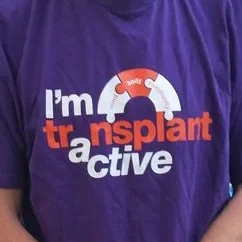Every year in Australia, 25,000 people experience out-of-hospital cardiac arrests.
For many, the holiday season brings joyous family reunions and is a time of togetherness. However, for some, it serves as a sombre reminder of a loved one lost to heart disease.


To know there are researchers out there looking to make it easier for people with heart failure creates hope
Wayne Broady, Heart Patient
What happened to Wayne 6 years ago was completely unexpected. After a weekly swimming session with mates, he felt faint and as if he had severe indigestion. Wayne “knew something was wrong but had no idea what”.

Heart Foundation support not only enhances the quality of life for people with heart conditions but also positions Australia as a global leader in heart technologies
Dr Thanh Nho Do
Dr Thanh Nho Do was awarded a Heart Foundation Vanguard Grant to design a soft skin-like robotic device that can help people with heart failure.
Depression and anxiety commonly happen together with coronary heart disease (CHD) – both before and after a cardiac event.
Associate Professor Adrienne O'Neil, Deakin University
2016 Future Leader Fellowship
It is a very complicated relationship that we don’t entirely understand yet. What we do know, is that poor mental health after a cardiac event can contribute to another event, rehospitalisation and even death.
This appears at the top, This appears at the top
Ben Graham
Developer
Summary, Summary, Summary, Summary
Make a tax deductible donation today and lead the charge in the fight to save Aussie Hearts
With your support, we can continue to fund ground-breaking research that drives real progress in the fight against heart disease. Donate today.



Emma survived a heart attack thanks to advances in medical research
Emma survived a heart attack thanks to advances in medical research. In 2015, just 45 years old and a seasoned bodybuilder, she knew the crushing pain from her hips to the top of her head meant something was very wrong. Thanks to emergency medical intervention and the placement of a stent in one of her arteries, the mother of two is alive and well today. Emma’s story had a happy ending, but many don’t.



"This is the block quote component, which has ability to feature image like this (or without image)."
Emma Wilson
Heart Attack Survivor
Your heart attack risk factors
Learn about the heart attack risk factors that are relevant to you, including:
- High blood pressure
- High cholesterol
- Diet
- Smoking
Speak to your doctor about your heart-health history. They can advise you on the heart attack risk factors you need to manage. Keeping your heart healthy and ongoing management of risk factors is critical to reducing the risk of another heart event.
Cardiac rehabilitation
Cardiac rehabilitation, also called cardiac rehab, provides personalised support, including information about:
- Your heart condition and treatment
- Getting back to your usual activities (for example, work, driving, having sex)
- Changing your lifestyle to improve your heart health
- Managing your medicines
- Stopping smoking
- Knowing warning signs
- What to do in an emergency.
Ask questions about things that worry you and get support if you feel stressed, anxious, or depressed.
Cardiac rehabilitation can help you recover and get back to normal activities sooner.
Taking your medicine
There are many medicines that treat:
- Heart attack
- Angina
- High blood pressure
- High cholesterol
- Other heart conditions
Your cardiologist, along with your doctor, will decide the best medicines for you to take at home. These will help you manage your heart condition. Speak to your doctor or cardiologist to understand the medicines you need to take.
When you leave the hospital, you will only have enough medicine for a short time. You must keep taking these medicines. See your doctor for more prescriptions and discuss any concerns you have with them.
Warning signs of a heart attack
Warning signs of a heart attack can differ. Not everyone will experience the same symptoms or have the same severity of symptoms. Some people have mild pain, while others have more severe pain.
Some heart attacks strike suddenly. Many people have warning signs and symptoms, hours, days, or weeks in advance.
It’s important to know:
- The warning signs and symptoms of a heart attack
- What to do if you or someone close to you is having a heart attack.
If you’re alone and think you’re having a heart attack, call triple zero (000) immediately.
Don’t wait, every minute counts – recognising symptoms and acting quickly by calling triple zero (000) can reduce damage to your heart and save your life.
Follow up with your doctor/cardiologist
Regular doctor visits are essential to monitor your heart health and medicines. You can also use these visits to discuss any questions you have about your medicines, emotional health, or recovery in general. They’re there to help, so don’t be afraid to talk about any concerns.